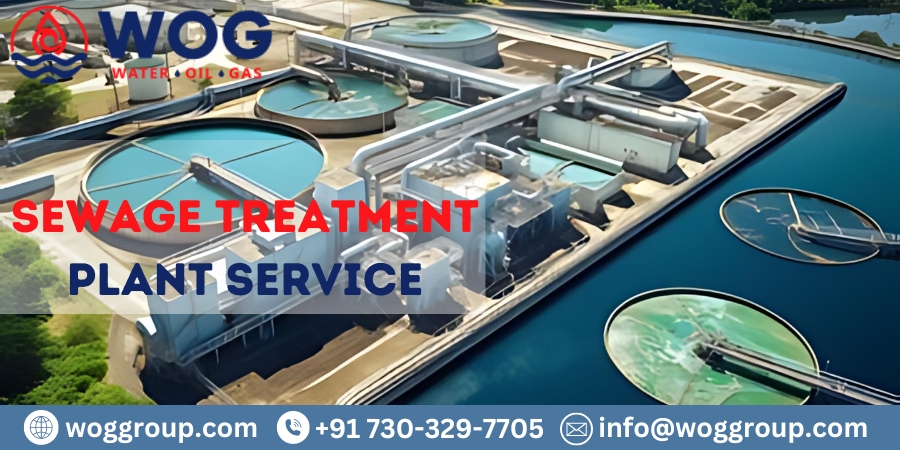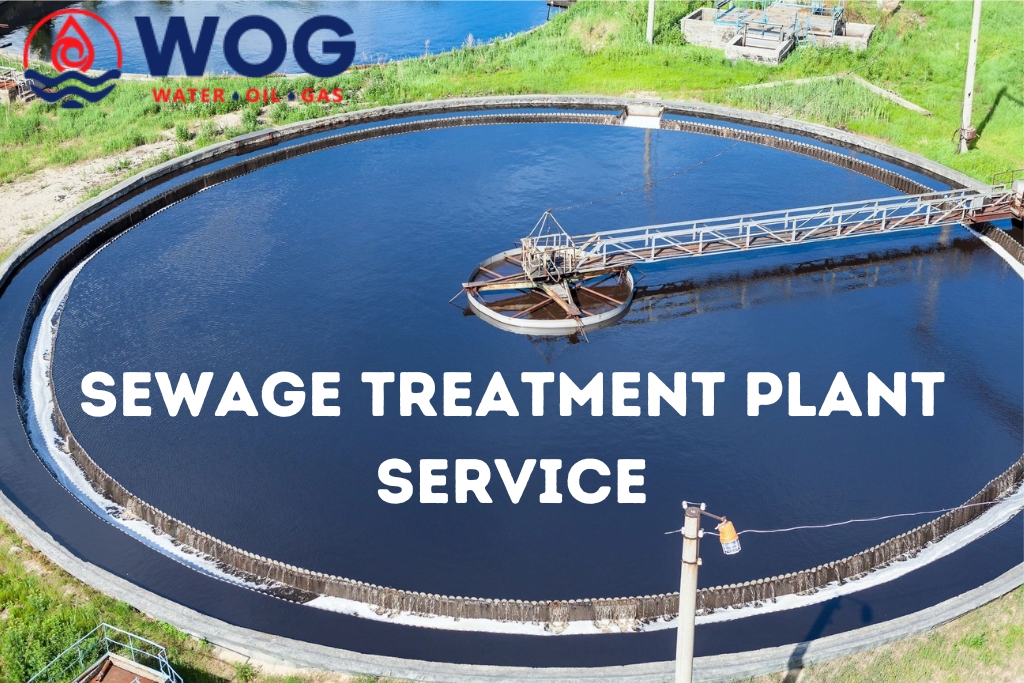Sewage treatment plant services have become vital in today’s regard to sustainability and care for the environment. Such trends as the current development in the field of sewage treatment and the protection of nature are profoundly altering the thermal dynamics of sewage processing. WOG Group realizes the importance of properly constructed eco-friendly sewage systems. That is why we do not stop looking for novelties in the industry. We seek ways for improvement of the efficacy and permanence of our services. We are the leaders in the technology of sewage treatment plants due to our advanced bioreactor and filtration technology. We set out to implement solutions that are effective, inexpensive and do not harm the environment. Let’s clean up and sustain the planet for future generations.
Traditional Sewage Treatment Methods
Traditional wastewater treatment has been used for decades. These methods typically involve a combination of physical, chemical, and biological processes:
- Preliminary Treatment: Screening and grit removal remove big particles and debris from sewage in this preliminary treatment. This step is essential to safeguard downstream equipment.
- Primary Treatment: Sludge forms in huge tanks as sewage sediments during primary treatment. After clarification, the liquid is separated for treatment. Primary treatment reduces solids but not dissolved organic matter or minerals.
- Secondary Treatment: Microorganisms break down sewage organic materials in this biological treatment. Biofilm reactors, trickling filters, and activated sludge technologies are common. Secondary treatment is required to reduce biological oxygen demand (BOD) and nutrient levels in the effluent.
- Tertiary Treatment: The final stage of treatment incorporates advanced techniques to remove remaining pollutants, such as nutrients (nitrogen and phosphorus) and pathogens. In tertiary treatment, filtration, chlorination, UV treatment, and nutrient removal are used.
Latest Innovations in Sewage Treatment Plant Services
Traditional sewage treatment plant services have been effective, but they often face limitations in terms of efficiency, cost, and environmental impact. As the demand for safe drinking water and more sustainable practices grows, the sewage treatment industry is evolving. Recent breakthroughs in technology and engineering have led to creative techniques in sewage treatment plant services. These innovations aim to enhance efficiency, reduce costs, and minimize environmental impact.

Notable advances include:
- Anaerobic Digestion: Microorganisms break down organic matter without oxygen. Anaerobic digestion not only reduces the volume of sewage sludge but also generates biogas, which may be used as a sustainable energy source. This idea improves sustainability by changing garbage into energy.
- Advanced Oxidation: Traditional approaches struggle to handle complex contaminants, but AOPs use strong oxidants. These methods effectively remove hazardous compounds from industrial effluent before discharge.
- Membrane Bioreactors (MBRs): MBR technology combines biological treatment with membrane filtration. This procedure removes suspended particles and pathogens for high-quality effluent. Urban wastewater treatment is increasingly using MBRs, which are compact and low-profile.
- Smart Water Management Systems: IoT technology in sewage treatment plants offers real-time monitoring and data processing. These systems let operators maximize treatment, detect leaks, and manage resources.
- Constructed Wetlands: This eco-friendly approach mimics natural wetland processes to treat sewage. Using plants and microbes, manmade wetlands eliminate fertilizers and organic materials while providing wildlife habitat.
Benefits of New Sewage Treatment Technologies
The latest sewage treatment systems have various advantages over previous methods:
- Lower Cost: Modern technologies do better at processing bigger sewage volumes faster. Treatment efficiency minimizes energy and resource use, lowering operational costs.
- Better Water Quality: Advanced treatment processes use water filteration systems to create wastewater that meets or exceeds regulations.
- Resource Recovery: New technologies help recover water, nutrients, and energy. Resource recovery decreases sewage treatment’s environmental impact and promotes sustainability.
- Flexible and adaptable: Modern sewage treatment systems can handle different flow rates and contaminant loads. This flexibility lets plants adapt to population increase and industrial wastes.
- Cost Savings: Advanced technologies may cost more initially, but they may save money in operational costs, energy consumption, and resource recovery.
- Aquatic Life: Proper sewage treatment keeps pollutants out of rivers, lakes, and oceans. Eutrophication, which depletes oxygen and harms aquatic life, can result from untreated sewage discharge.
- Protecting Diversity: Protecting biodiversity requires clean water. By handling sewage properly, we safeguard biodiversity and essential plant and animal habitats.
- Public Health: Water contamination can spread infectious diseases like cholera and dysentery. Pathogens and harmful substances in wastewater are removed by effective sewage treatment before they enter the environment.
Future trends and predictions for sewage treatment plant services
In 2024, several important trends and projections will shape sewage treatment plant services. These trends show that environmental issues require sustainable practices, technical advances, and regulatory compliance. Important sewage treatment trends include:
- Using Advanced Treatment Technology
New technologies are improving wastewater treatment plant efficiency and effectiveness. MBRs and AOPs are popular. These technologies can remove micro-pollutants and pathogens, which are increasing in wastewater.
- Restore resources
Rising wastewater resource recovery. Wastewater treatment plants are expected to become resource recovery facilities that recover water, nutrients (like nitrogen and phosphorus), and energy (biogas). This change promotes circular economy sustainability and waste minimization.
- Demanding Rules
Sewage treatment plants will be monitored for discharge practices as environmental restrictions tighten. Due to regulations, advanced wastewater treatment solutions that remove PFAS and other emerging contaminants will be used.
- Digitalization and Smart Tech
Smart technologies and digital solutions will transform sewage treatment. IoT devices for real-time monitoring and data analytics will improve operational efficiency, enabling predictive maintenance and enhanced treatment operations. The digital transformation will enable plants to adapt to changing influent circumstances and regulations.
- Sustainability and ESG Goals Focus
ESG issues are becoming more important for wastewater treatment. Sewage treatment plants must reduce their carbon footprint and increase energy efficiency to meet sustainability goals. This tendency will certainly support renewable energy and sustainable businesses.
- Sludge-Management Innovations
Innovation in sludge management is needed in 2024. Anaerobic digestion and improved dewatering will become prominent sludge treatment and disposal options. These technologies reduce waste and recover energy and minerals from sludge.
Conclusion
Sewage treatment is necessary for environmental and public safety. Sewage treatment plant services have evolved to meet the need for more efficient, sustainable, and effective solutions. Wastewater treatment centres remove all impurities, harmful and non-toxic, allowing diverse ways. Thus, it recycles and disposes of hazardous substances from the water using numerous methods. Wastewater treatment plants recycle or eliminate water in an environmentally friendly way. Industries and towns may enhance quality drinking water, recover resources, and lessen their environmental effect by adopting new technologies. These advances improve the earth and meet the growing need for clean water in metropolitan areas. Effective sewage treatment is crucial to protecting our environment for future generations.
